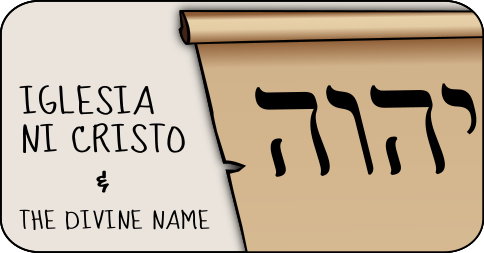Do the I AM statements of Jesus prove that he is God?

The "Iglesia Ni Cristo" teaches that Jesus is not God. However, many often point to the I AM statements of Jesus as proof of his deity. Was Jesus really using the divine name and claiming to be God when he said I AM?
When we look at the context of the I AM statements, we see that he was indeed claiming to be God.[1]
"Ego eimi" is Greek translation of the divine name, "YHVH".
In Exodus, God gave his divine name to Moses.
Exodus 3:14 (ESV) - 14 God said to Moses, "I AM WHO I AM"; and He said, "Thus you shall say to the sons of Israel, 'I AM has sent me to you.'"
That name, "YHVH" when translated into Greek is "ego eimi".[2] This is the phrase that Jesus uttered on so many occasions when his deity was in question and when he wished to demonstrate his power.
Jesus is the same God that spoke the divine name to Moses.
The INC often misunderstands the Trinitarian claim to be that Jesus and the Father are two different Gods. The Trinitarian claim is that they are the same God.
Therefore, when the INC objects to the Trinitarian understanding of the I AM statements of Jesus on the grounds that Jesus was not the God that spoke in Exodus 3:14[3] they attack a straw man.
The context determines whether or not Jesus was using the divine name.
The Trinitarian claim is not that any utterance of the phrase "ego eimi"
represents a claim to deity. Rather, the claim is that it should be understood
as a claim to deity when
1. when the statement introduces a grammatical/expositional abnormality that
implies a special meaning,
2. it is accompanied by some display of divine power, or
3. it is understood by the biblical audience, those being spoken to in the
narrative, as a claim to deity.
For example,
1. in John 8:24 Jesus says the Jews must believe that "I AM", which would make
no sense if he was only claiming that he existed,
2. in John 18:5, an entire army falls to the ground when he says "I AM", and
3. in John 8:58, the Jews went to stone Jesus because he said "I AM", meaning
they understood his statement as a claim to deity.
The INC misuses the example of Manoah.
The INC uses the example of the messenger who appeared to Manoah to demonstrate that "ego eimi" does not refer to the divine name.[4] The issues with this argument are numerous.
First, the INC relies on a Greek translation of the Bible, the Septuagint, instead of the actual text of scripture. This is important because the claim is being tied to a particular set of words, not merely a translation.
Second, the INC misunderstands the claim to be that any utterance of "ego eimi" refers to the divine name. As discussed previously, the claim is only that "ego eimi" refers to the divine name when the context demonstrates that it does.
Third, the INC rashly assumes that Trinitarians do not believe that the messenger was Jesus and that it would be foolish to do so. In fact, most Trinitarians with a solid understanding of their theology do teach that this messenger was Jesus!
Conclusion
The I AM statements of Christ, when dictated by the context, are claims to deity. Regardless of the teachings of the INC, Jesus taught that he was God. The INC should consider the context of these I AM statements and attempt to explain their grammatical abnormalities, demonstrations of power, and invoked reactions.
[1] The purpose of this article is not to present any specific I AM statement of Jesus, but to lay the ground work for presenting the I AM statements of Jesus.
[2] As verified by the Septuagint, an early translation of the Hebrew Bible into Greek
[3] "Is Jesus the God who said “I AM” in Exodus 3:14? The answer is NO!" INC Article on John 8:58
